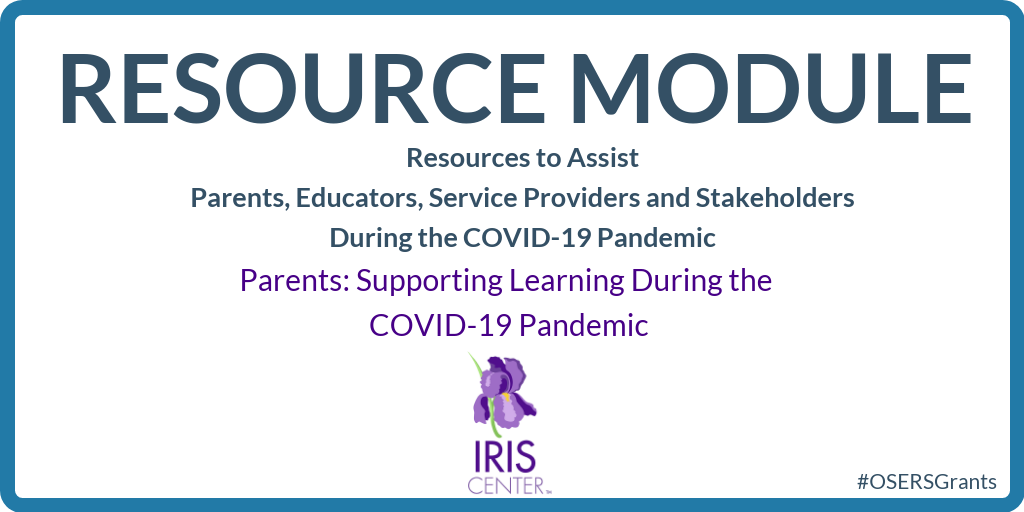Kristen Kushiyama, Office of Special Education and Rehabilitative Services
Most schools in the United States shut their doors almost two months ago and switched from traditional classrooms to distance learning environments.
Families moved to adapt to at-home school settings while also having to shift their own work schedules and environments. Teachers, many of whom also had to account for their own children’s schooling, raced to prepare learning packets and modify in-classroom instruction to support their students from afar.
U.S. Department of Education grant-funded centers started to release resources and materials specific to helping support families, educators and service providers during a pandemic.
The IRIS Center, which receives funding from the department’s Office of Special Education Programs, typically gears its resources towards college teacher preparation programs and professional development activities for practicing professionals and independent learners.
The center used its experience developing online instructional resources to create the Parents: Supporting Learning During the COVID-19 Pandemic module to provide families with tools and strategies to help them support their student’s at-home learning during the pandemic.
“Adjusting to the ‘new normal’ isn’t easy,” said Naomi Tyler, IRIS Center director. “With all they have to do, it can be confusing, tiring and stressful for parents to know how to best support their children’s education too.”
“The module offers ready-to-use tools and practical strategies to help families navigate their role in teaching, tips on how families can support their child’s learning, consideration for meeting the needs of children with disabilities and more,” Tyler said. “To date, more than 7,000 people from 49 states and the District of Columbia have accessed this resource.”
The module contains links to additional resources for those who want more information.
“It is flexible enough that families can spend as little or as much time as they need or have available to get helpful ideas,” Tyler said.
“Remember that supporting your child’s learning doesn’t mean that you have to take on the role of the teacher,” Tyler said. “You don’t have to recreate the school day. And you don’t have to teach an entire lesson.”
The IRIS Center reiterated that supporting a child’s learning means families “create time and space for your children to learn, encourage your children to learn and to do any work that is assigned, answer your child’s questions and provide help when needed, and support your child socially and emotionally.”
Many OSEP-funded centers have created resources and resources lists to support families during the COVID-19 pandemic. To find additional resources, visit:
- Early Childhood Technical Assistance Center
- National Center for Systemic Improvement
- COVID-19 policy guidance. Includes state-specific guidance, information and resources.
- Distance Learning
- Tele-Practice/Tele-Therapy
- Visit the Department of Education’s COVID-19 (“Coronavirus”) Information and Resources for Schools and School Personnel for department resources.
Blog articles provide insights on the activities of schools, programs, grantees, and other education stakeholders to promote continuing discussion of educational innovation and reform. Articles do not endorse any educational product, service, curriculum or pedagogy.

